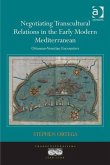Early Medieval Europe 300-1050 provides students with the conceptual and methodological tools to investigate this complex period. This new edition extends beyond Western Europe to include the research on the Byzantine Empire, Moslem lands, and North Atlantic. It is an essential resource for students studying this period for the first time.
Hinweis: Dieser Artikel kann nur an eine deutsche Lieferadresse ausgeliefert werden.
Hinweis: Dieser Artikel kann nur an eine deutsche Lieferadresse ausgeliefert werden.
'This is a wholly original "textbook" that explodes the genre in an enormously fruitful way. By focusing on evidence and interpretations, rather than offering a summary of what we think we know, it opens up for students the excitement of history as a conversation, a puzzle, even a game. The Early Middle Ages is an ideal period for such an exercise, given the relative scarcity of sources and the vibrant state of contemporary scholarship in the field. This is a book that treats students with great respect and offers instructors opportunities for creative pedagogy. Anyone teaching the period should have it on the shelf.'
Adam J. Kosto, Columbia University, USA
'David Rollason's Early Medieval Europe provides a clear and comprehensive introduction to the sources for early medieval history as well as the historiographical debates occupying scholars right now. This new edition incorporates a wealth of fresh material on Byzantium and the Muslim caliphate, while retaining its unique approach that takes students seriously as active participants in the learning process.'
Scott Bruce, University of Colorado Boulder, USA
Adam J. Kosto, Columbia University, USA
'David Rollason's Early Medieval Europe provides a clear and comprehensive introduction to the sources for early medieval history as well as the historiographical debates occupying scholars right now. This new edition incorporates a wealth of fresh material on Byzantium and the Muslim caliphate, while retaining its unique approach that takes students seriously as active participants in the learning process.'
Scott Bruce, University of Colorado Boulder, USA









